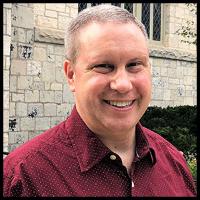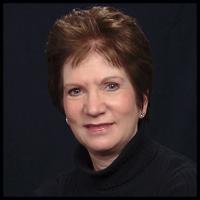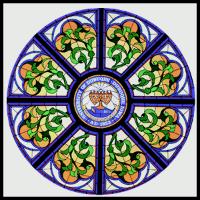UDTS | DMin Information
Two Cohorts are forming to begin in Spring 2019
CONGREGATIONAL VITALITY
"Exploring Biblical Themes to Nurture Your Congregation's Faithfulness"
This cohort will explore the seven marks of congregational vitality developed by the Presbyterian Mission Agency: Lifelong Formation, Intentional Evangelism, Outward Focus, Servant Leadership, Inspiring Worship, Caring Relationships, and Healthy Systems. Participants will have the opportunity to discover biblical themes which support and nuance these marks of faithfulness, while also considering the factors which lead to congregational sustainability. Discerning their own congregation's attention to the seven marks will help participants to gain focus as they move toward their final project.
 The Rev. Dr. Charles (Chip) Hardwick, Ph.D., Interim Associate Pastor, First Presbyterian Church, Lake Forest, IL. Chip recently served for six years on the national staff of the Presbyterian Church (USA) as Director of Theology, Formation, and Evangelism. Before that he served as the Head of Staff at Second Presbyterian Church, Bloomington, IL, and as Associate Pastor of North Avenue Presbyterian Church, Atlanta, GA. He has a Ph.D. in homiletics (preaching and worship) and an M.Div. from Princeton Seminary, a Th.M. from Emory, and an M.B.A. from the Kellogg School at Northwestern.
The Rev. Dr. Charles (Chip) Hardwick, Ph.D., Interim Associate Pastor, First Presbyterian Church, Lake Forest, IL. Chip recently served for six years on the national staff of the Presbyterian Church (USA) as Director of Theology, Formation, and Evangelism. Before that he served as the Head of Staff at Second Presbyterian Church, Bloomington, IL, and as Associate Pastor of North Avenue Presbyterian Church, Atlanta, GA. He has a Ph.D. in homiletics (preaching and worship) and an M.Div. from Princeton Seminary, a Th.M. from Emory, and an M.B.A. from the Kellogg School at Northwestern.

The Rev. Dr. Sara M. Koenig (Ph.D.), Associate Professor of Biblical Studies, at Seattle Pacific University. Sara is the author of Isn't This Bathsheba? A Study in Characterization and a frequent contributor toworkingpreacher.org. Sara's initial draw to youth ministry gave way to her passion for the Old Testament and adult Christian education, with particular attention to the nexus of Bible and culture. She has taught at SPU since 2003 and had an extensive list of articles and presentations to her credit.
MILITARY CHAPLAINCY FOCUS
“American Military Chaplaincy in the Twenty-First Century”
The notion of military chaplaincy in America has, from time to time, been challenged in the courts. It has also been challenged in America’s churches and in American society. In the wake of the Vietnam War and Richard Hutcheson’s ground-breaking book, The Churches and the Chaplaincy (1975), the individual military services have sought to educate and train their chaplains in accordance with the U.S. Constitution’s first amendment: “Congress shall make no law respecting an establishment of religion or prohibiting the free exercise thereof…” Military chaplaincy is thus both defined and constrained by governmental factors to which civilian faith communities are not subject. Within such constraints, how can or should chaplains engage in outreach on behalf of their own faith groups? If military members are not affiliated with a faith group or are avowedly atheist, who are chaplains to them? On what ethical and moral basis do chaplains advise command? The chief objectives of this cohort are to review and strengthen military chaplains’ awareness of their ministry identity, to help them develop a Reformed theological understanding of their role, and to identify strategies for addressing human need in the military.
 The Rev. Dr. Joan Wooten (Ph.D.), is a Navy chaplain (ret.) and Parish Associate at First Presbyteran Church, Pensacola, FL. Joan received her Ph.D. in Theology and Ethics at Union Presbyterian Seminary in Richmond, VA, in 2018. Her dissertation was “A Necessary Connection: The Doctrine of the State in Relation to the Church in the Theology of Calvin and Schleiermacher.” Before moving to Florida in 2003, she served as Presbyterian Campus Pastor to Old Dominion University in Norfolk, Virginia from 1993 to 2001. Ordained in 1982 by National Capital Union Presbytery, Rev. Wooten served on active duty as a Navy Chaplain from 1982 to 1990 and in the Navy Reserve from 1990 to 2013. She retired from the Navy in January 2013 with the rank of Captain.
The Rev. Dr. Joan Wooten (Ph.D.), is a Navy chaplain (ret.) and Parish Associate at First Presbyteran Church, Pensacola, FL. Joan received her Ph.D. in Theology and Ethics at Union Presbyterian Seminary in Richmond, VA, in 2018. Her dissertation was “A Necessary Connection: The Doctrine of the State in Relation to the Church in the Theology of Calvin and Schleiermacher.” Before moving to Florida in 2003, she served as Presbyterian Campus Pastor to Old Dominion University in Norfolk, Virginia from 1993 to 2001. Ordained in 1982 by National Capital Union Presbytery, Rev. Wooten served on active duty as a Navy Chaplain from 1982 to 1990 and in the Navy Reserve from 1990 to 2013. She retired from the Navy in January 2013 with the rank of Captain.
 The Rev. Dr. David W. Peters, (D.Min), served as an enlisted Marine and Army Chaplain, deploying to Baghdad, Iraq in 2005-2006. His experiences in Iraq and the founding of the Episcopal Veterans Fellowship has been told by NPR’s John Burnett. His books, Death Letter: God, Sex, and War, and Post-Traumatic God: How the Church Cares for People Who Have Been to Hell and Back, have been widely read and well-received. David blogs for the Huffington Post, Oxford University Press, and hosts two podcasts: Dear Padre and The Ermenfird Penitential. He has served as Associate Rector at St. Mark's Episcopal Church, Austin, TX.
The Rev. Dr. David W. Peters, (D.Min), served as an enlisted Marine and Army Chaplain, deploying to Baghdad, Iraq in 2005-2006. His experiences in Iraq and the founding of the Episcopal Veterans Fellowship has been told by NPR’s John Burnett. His books, Death Letter: God, Sex, and War, and Post-Traumatic God: How the Church Cares for People Who Have Been to Hell and Back, have been widely read and well-received. David blogs for the Huffington Post, Oxford University Press, and hosts two podcasts: Dear Padre and The Ermenfird Penitential. He has served as Associate Rector at St. Mark's Episcopal Church, Austin, TX.